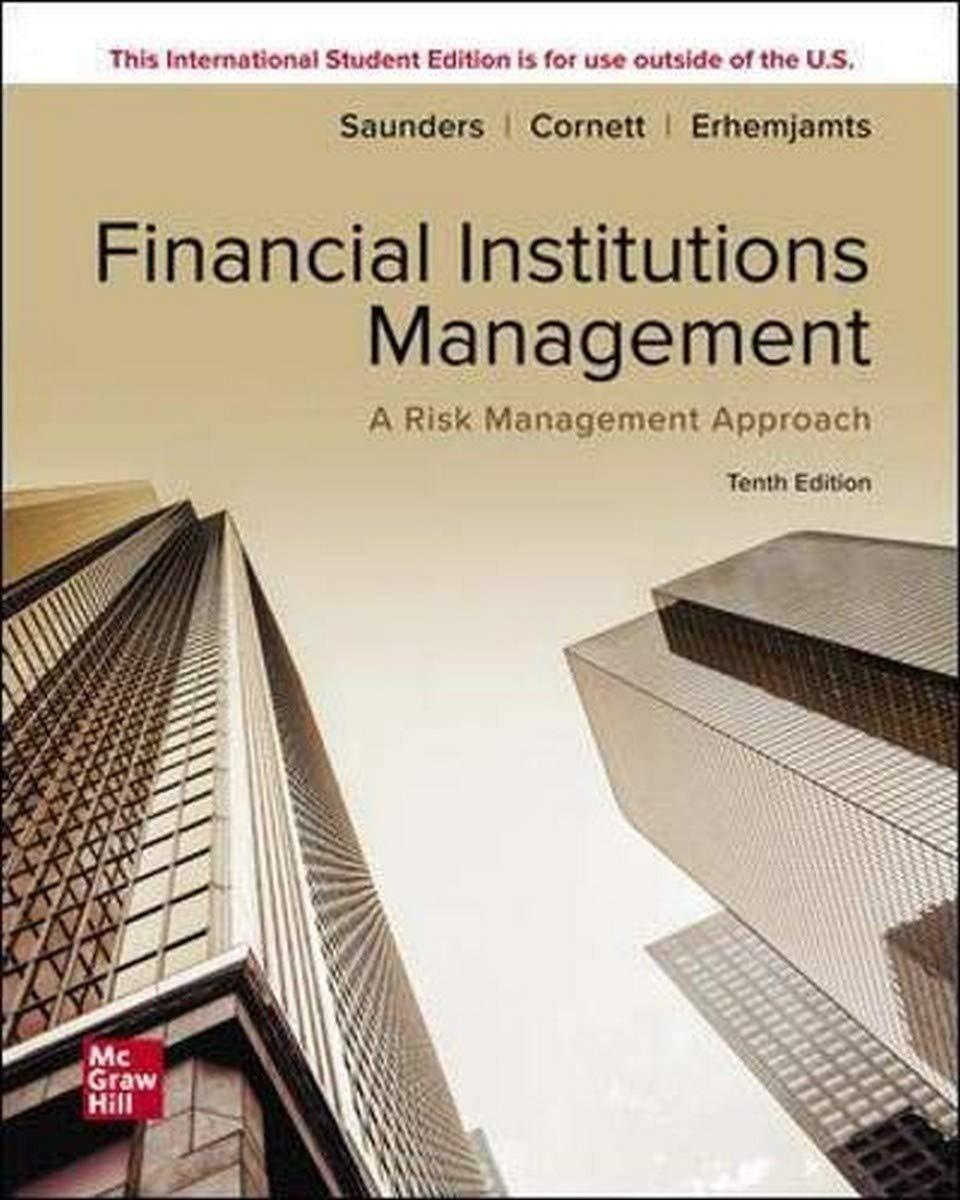Question
Consider the following probability distribution for stocks X and Y : State Probability Return on stock X Return on stock Y 1 0.25 13% 14%
Consider the following probability distribution for stocks X and Y :
| State | Probability | Return on stock X | Return on stock Y |
| 1 | 0.25 | 13% | 14% |
| 2 | 0.5 | 10% | 10% |
| 3 | 0.25 | -6% | -8% |
The correlation coefficient between the two stocks is 0.20. Write your answers to two decimal places.
1) What are the expected rates of return of stocks X and Y?
2) What is the risk for stocks X and Y?
3) Assume that the universe is composed only of stocks X, Y. Draw an approximation of the opportunity set. Mark on the graph 1) stocks X and Y 2) The efficient frontier 3) the minimum variance portfolio (G) and 4) label of the axis.
4) If there exist a risk-free asset (r f ) that earns 3% annual return. Find the weights of stock X and Y in the optimal risky portfolio.
5) Return and risk of the optimal risky portfolio (P).
6) Draw the efficient frontier in the presence of a risk-free asset and mark portfolio P on the graph in question 3 above
7) Salwa wants to invest in a complete portfolio. What proportion of investment should Salwa invest in the optimal risky portfolio? Identify Weight of P, Weight of stocks X and Y, and Weight of risk-free rate. Salwas degree of risk aversion is 7.
8) What are the risk and return for Salwacomplete portfolio?
9) What is Salwas utility when investing in the complete portfolio?
10) Draw the indifference curve that maximises Salwas utility on the graph in question 3.
11) Mira has a degree of risk aversion of 2 . Roughly show in the graph in question 3 above the location of Miras complete portfolio.
Step by Step Solution
There are 3 Steps involved in it
Step: 1

Get Instant Access to Expert-Tailored Solutions
See step-by-step solutions with expert insights and AI powered tools for academic success
Step: 2

Step: 3

Ace Your Homework with AI
Get the answers you need in no time with our AI-driven, step-by-step assistance
Get Started


